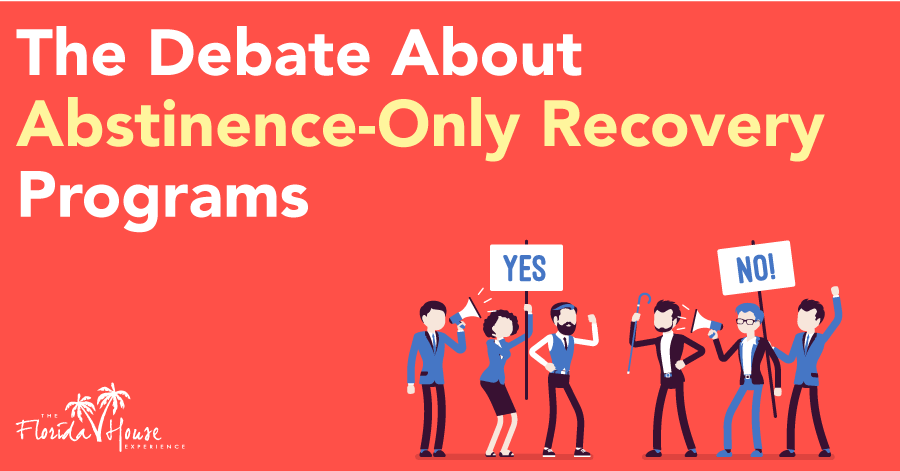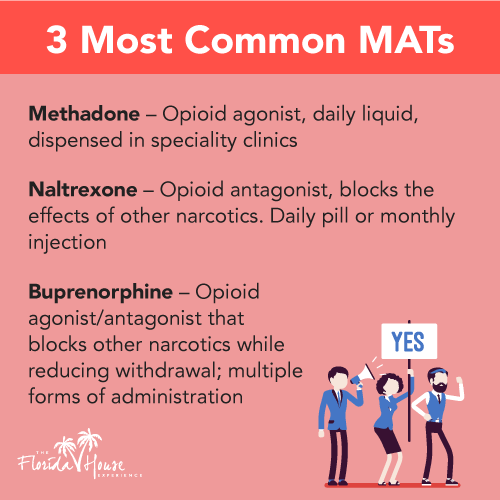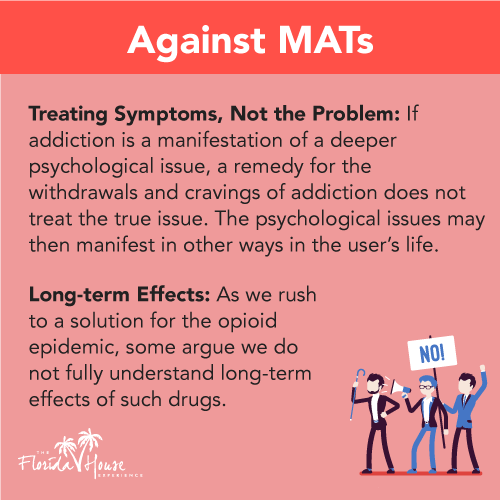
Historically, treatment for addiction has taken a very firm stance: no more substance use, ever. This mindset operates under the assumption that addiction begets addiction and that any addictive substance is a risk for those with a history of abuse. But is this the right approach today in a world dominated by effective drug regimens and extensive scientific study into the psychology and science behind drug addiction?
As new research is indicating, an abstinence-only, one-size-fits-all approach to rehabilitation and treatment for those living with substance addiction may not be the right path for everyone. In many cases, promoting a cold-turkey method in response to years or even decades of addiction can do more harm than good, creating an atmosphere in which the scale tilts toward failure rather than success.
The History of Abstinence-Based Addiction Treatment
In the last century, addiction treatment has come a long way. Instead of seeing those with substance abuse issues as criminals, as was once common, we now see addiction as a disorder in need of professional support by trained practitioners. However, through it all, abstinence has reigned supreme. But how did we come to this point?
In the history of addiction treatment, Alcoholics Anonymous is among the prime contributors to modern models. Founded in 1935 in Akron, Ohio, AA emphasizes a 12-step process that involves the belief in a higher power, acceptance that substance abusers are powerless to addiction and complete abstinence.
Due to the initial success of the program, this method has been mimicked and mirrored in countless ways, including in the formation of similar programs, like Narcotics Anonymous. The Minnesota Model, an abstinence-only approach derived from the original tenets of AA, rose to prominence in the 1950s with adoption by a predecessor of the Hazelden Betty Ford Foundation, a well-known not-for-profit resource for addiction treatment. As these opportunities expanded so did the understanding that abstinence is the only true way to facilitate sobriety.
The Problems With Abstinence-Only Programming

While the intentions are good — after all, all addiction medicine treatment programs aim to stop the cycle of abuse, and this generally means ceasing use — there are numerous challenges in the embrace of programs modeled after Alcoholics Anonymous. This does not discredit the vast number of lives saved by this program or its value, but the barriers that people encounter while using this method.
The first challenge is faith. Not everyone is religious; while around 70 percent of Americans are Christian, nearly 23 percent of homes claim to be unaffiliated, while around 6 percent practice other world religions. This excludes a large number of individuals in need of help. Many 12-step programs alter their language and do their best to make it clear that a ‘God of your own understanding’ need not be the ‘Christian God’. It remains though, that people are hesitant to use the program due to an unwillingness to seek God. Further, abstinence-only programming often ignores much of the recent research in addiction medicine, including both harm reduction strategies and may create a stigma around the use of medication-assisted treatments. In doing so, those who could benefit from these techniques are forced into a single rehabilitation conduit, leading to an increased risk of relapse and hesitation to seek treatment.
The Rise in Medically Assisted Treatment
Over the last several decades, many addiction treatment programs have moved away from traditional schools of thought while embracing a new trend: medication-assisted treatment, or MAT. Rather than a cessation of using any substance entirely, this process relies on substances like methadone and Suboxone® for opiate users and buprenorphine for alcoholics.
 To some, especially proponents of abstinence, this seems like cheating as it just replaces one substance with another. However, the research and results disagree. Those who quit with assistance from medications are twice as likely to stay in recovery and avoid relapse for at least a year. The advantages don’t stop there, either. Many medications are antagonists, blocking the effects of substances like opiates, lowering the risk of abuse and overdose. For those who quit without assistance, overdose risks are elevated as tolerance sharply drops off. Many doctors also argue that as medications are used in the treatment of virtually every other disease, there’s no reason addiction should be seen in a different light.
To some, especially proponents of abstinence, this seems like cheating as it just replaces one substance with another. However, the research and results disagree. Those who quit with assistance from medications are twice as likely to stay in recovery and avoid relapse for at least a year. The advantages don’t stop there, either. Many medications are antagonists, blocking the effects of substances like opiates, lowering the risk of abuse and overdose. For those who quit without assistance, overdose risks are elevated as tolerance sharply drops off. Many doctors also argue that as medications are used in the treatment of virtually every other disease, there’s no reason addiction should be seen in a different light.
However, there are many criticisms of MAT from the opposing camp. Those who look down on medication in treatment often point out that using medication eliminates the need to address underlying psychological problems. After all, if addiction was merely the result of psychological issues that need to be resolved, treating the addiction with MAT is not a solution to the problem. This effectively leaves those who don’t use medication in conjunction with intensive counseling at risk for further abuse in the future.
As the nearly 22 million Americans living with substance use disorders demonstrate, there’s no easy way to fight back against addiction, and there are no universal truths in sobriety. However, as science is now working to prove, abstinence is not the only path forward. With alternatives like medication-assisted treatment, it may be possible to reduce relapse rates and help more individuals with a substance use disorder embrace a happy, healthy return to normal life.






